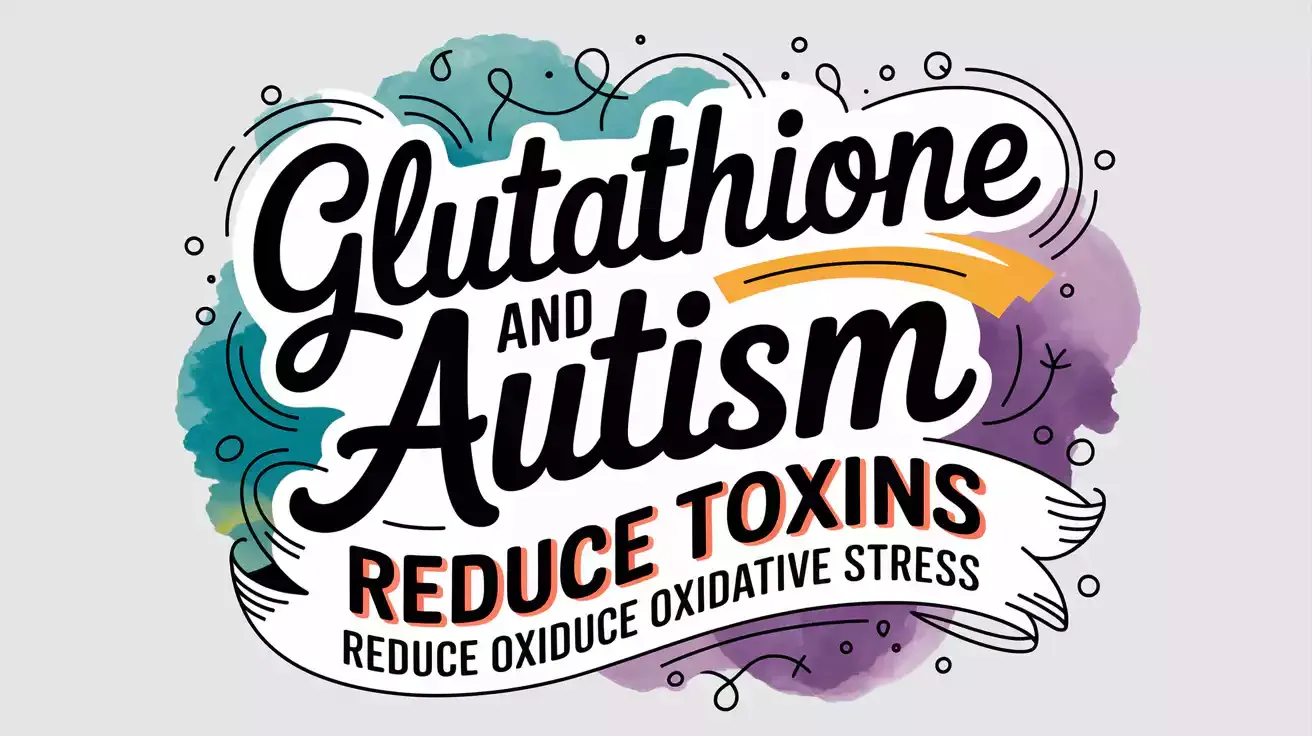As parents, we always want the very best for our children, and understanding the complexities of autism can help us support them more effectively. At the core of our body's ability to function and heal is something called mitochondria – tiny powerhouses within each cell that generate energy, crucial for overall health, including brain health.
Why are mitochondria important?
We recognise that the unique challenges faced by individuals with autism can include difficulties with self-regulation, learning, and adapting to new environments. This can be partly due to mitochondrial health, which plays a significant role in how effectively the brain and body can operate and respond to therapies and learning opportunities.
Mitochondria are not just important for brain function; they influence how our bodies react to stress and adapt to change. When mitochondria are not at their best, it can contribute to increased stress levels, making it harder for your child to cope with everyday challenges.
Focusing on nurturing healthy mitochondria is therefore vital. It can offer support not just for the brain but for the entire body's stress response systems, possibly making it easier for your child to navigate the world with more resilience.
How to support mitochondrial health.
Diet to support mitochondria
To foster mitochondrial well-being, we can start by reducing exposure to low-quality foods and environmental toxins that contribute to mitochondrial dysfunction. In this state, rather than thriving, mitochondria are merely surviving, which means they're not effectively supporting growth, repair, or learning processes that are so important for your child's development.
Choosing high-quality, nutritious foods is a foundational step. In addition to a healthy diet, specific supplements have been found to support mitochondrial health with minimal risk. For instance, omega-3 fatty acids are commonly recommended, but it's crucial to ensure they are of high quality due to their sensitivity to damage.
Integrating quality, stable fats into the diet is another avenue to support the health of cell and mitochondrial membranes, which are critical to their function. Fats such as coconut oil, butter (or its clarified form, ghee), and uncooked olive oil provide a wealth of benefits for maintaining the integrity of these membranes.
Coconut oil, rich in brain-healthy saturated fat and medium-chain triglycerides (MCTs), stands out for its ability to support mitochondrial function. MCTs, in particular, are known to be quickly absorbed and metabolised, providing a rapid source of energy that can be particularly helpful for the brain cells of children with autism.
Butter and ghee, which are high in vitamins D and A, omega-3 fats, and butyric acid, not only contribute to the health of cell membranes but also boost immunity and combat inflammation. This can be especially beneficial for children with autism, who may experience heightened inflammation and immune system irregularities.
As for uncooked olive oil, it's a source of monounsaturated fats, known for their ability to support heart health. The high content of oleic acid in olive oil is associated with anti-inflammatory effects and may contribute to the structural integrity of cellular membranes, including those of the mitochondria. Dietary choices that include these healthy fats are part of the heart-healthy Mediterranean diet and can be an effective strategy in promoting optimal mitochondrial function.
By incorporating these stable fats into your child’s diet, you're providing the building blocks for robust cell and mitochondrial membranes, which in turn can aid in proper function and resilience. It's always advisable to opt for unrefined versions of these fats, as they retain more of their natural nutrients and are free from the potential negative impacts of the refining process.
Supplements to support mitochondria.
C15 fatty acid
The recent emergence of C-15 fatty acids as a supplement offers a promising alternative. With ongoing research suggesting their positive impact on cell and mitochondrial membrane health, C-15 fatty acids could play a pivotal role in maintaining robust mitochondrial function. They are believed to help reduce inflammation and improve overall cellular health, which is crucial for health, longevity, and children with autism who may experience heightened inflammatory responses.
C15 fatty acid has been shown to potentially enhance mitochondrial function by supporting the integrity of cell membranes.
Here’s what the research indicates:
First 2 Weeks. Pure C15:0 activates crucial PPAR receptors, while a significant C15:0 metabolite (known as PDC) stimulates cannabinoid receptors tied to sleep regulation, mood enhancement, and appetite control. A survey of customers revealed that 58% of those taking a C15:0 supplement noted improvements in sleep, a more stable mood, or reduced snacking.
Between 3 and 12 Months. C15:0 diligently works at the cellular level to repair and rejuvenate your long-term health. Throughout this period, C15:0 supplements aid in restoring cellular vitality and enhancing mitochondrial performance. One particular study showed that improved mitochondrial function, fostered by C15:0, led to increased hair growth.
Between 1 and 3 Years. C15:0 takes hold to uphold your long-term health and wellness at the cellular level. Numerous peer-reviewed scientific studies have associated C15:0 with enhanced long-term metabolic, cardiovascular, immune, and liver health.
C15 fatty acid can be obtained through foods such as grass-fed butter, fermented dairy and sardines; however, it's now available in a cost-effective C15 fatty acid supplement. Use this link to get a 20% discount on the C15 fatty acid supplement.
NAD+
Another aspect of supporting mitochondria involves a molecule called NAD, essential for energy production. Low levels of NAD can lead to reduced cellular function.
To boost NAD, supplements that provide precursors like NR (nicotinamide riboside) and NMN (nicotinamide mononucleotide) are available. However, these precursors aren't without their challenges, as they may increase NAD levels without supporting the natural recycling process of NAD within the cells. This can put unnecessary stress on the body, particularly concerning for our children with autism.
NAD precursors with supporting NAD recycling can lead to stressing our methylation pathways. This can lead to challenges, including increased anxiety. This is well known in the anti-ageing community, who take methylation supporting supplements such as TMG along with their NAD precursors.
To address this, supplements like Time+ have been formulated to not only offer NR but also to enhance the cell's ability to recycle NAD. By doing so, it encourages a balanced increase in NAD without relying excessively on precursor and methylation supporting supplements.
Glutathione
Another important molecule for mitochondrial health is glutathione. Glutathione reduces oxidative stress and supports the elimination of toxins. To read more about the importance of glutathione and how to increase it in our bodies, you may read my post on glutathione.
Urolithin A
Urolithin A is a compound that has gained attention for its potential to support mitochondrial health. It supports mitochondria by promoting the process of mitophagy, which is the removal of damaged mitochondria. This results in healthier and more efficient cellular energy production. By clearing out the damaged mitochondria, cells can function more effectively, leading to improved overall health.
Urolithin A is naturally produced in the gut when certain polyphenols found in foods like pomegranates and berries are metabolised by gut bacteria. However, not everyone can produce it efficiently due to variations in gut microbiota, and very few people can produce high enough amounts to promote significant health benefits. This is why some people turn to supplements that provide urolithin A directly.
Final thoughts.
As parents, it's only natural to search for ways to support our children's health and well-being. While considering these options, always consult with a healthcare professional to ensure the best possible plan for your unique child. Together, we can take steps to nurture their potential and help them thrive in their own special way. If there's any aspect of this text that you feel needs further clarification or adjustment, please let me know, and I'd be glad to refine the information further.
Frequently Asked Questions
What are mitochondria, and why are they important for my health?
Mitochondria are tiny structures inside your cells known as the "powerhouses" because they produce the energy your body needs to function. They convert nutrients from food into a form of energy called ATP (adenosine triphosphate). When mitochondria are healthy, they support good energy levels, brain function, and overall vitality. Conversely, damaged or dysfunctional mitochondria can contribute to fatigue, aging, and various health problems. Supporting their health is essential for maintaining energy, preventing cellular damage, and promoting overall well-being.
How can I naturally support and maintain healthy mitochondria through diet and lifestyle?
Great question! There are several lifestyle and dietary strategies to help support your mitochondria:
- Eat a balanced diet: Focus on whole foods rich in antioxidants (like berries, spinach, and nuts) to fight oxidative stress that can damage mitochondria.
- Include healthy fats: Omega-3 fatty acids from sources like fish, grass-fed aniaml fats, flaxseeds, and walnuts can promote mitochondrial health.
- Stay active: Regular physical activity, especially endurance exercises, stimulates mitochondrial biogenesis (growth and repair).
- Manage stress: Chronic stress can harm mitochondria; practices like meditation, yoga, or deep breathing can be beneficial.
- Prioritize sleep: Quality sleep allows your body to repair and regenerate mitochondrial function.
- Avoid toxins: Limit exposure to environmental toxins, cigarette smoke, and excessive alcohol which can damage mitochondria.
Incorporating these habits can help your mitochondria function optimally and support your overall health.
What role do supplements play in supporting mitochondrial health, and which are the most effective?
Supplements can complement your efforts to maintain healthy mitochondria, especially if you're deficient or targeting specific needs. Some of the most researched supplements for mitochondrial support include:
- Coenzyme Q10 (CoQ10): Helps in energy production within mitochondria and acts as an antioxidant.
- Creatine: Supports energy metabolism, especially in muscles and brain.
- PQQ (Pyrroloquinoline quinone): Promotes mitochondrial biogenesis.
- Alpha-lipoic acid: An antioxidant that regenerates other antioxidants and supports mitochondrial enzymes.
- C15 fatty acid: C15 is a newly discovered essential fatty acid that outperforms medication in some metabolic health markers and has many of the benefits of omega-3 fatty acids. However, it is more stable than omega-3 fatty acids. More information about c15 in this post.
- Omega-3 fatty acids: Support mitochondrial membrane integrity.
Always consult with a healthcare professional before starting any supplements, particularly if you have existing health conditions or take medications.
How does oxidative stress affect mitochondrial function, and what can I do to reduce this damage?
Oxidative stress occurs when there’s an imbalance between harmful free radicals and antioxidants in your body. Mitochondria are both producers and targets of free radicals, so excessive oxidative stress can damage their DNA, membranes, and proteins, impairing energy production. To reduce oxidative stress and protect your mitochondria:
- Consume antioxidants: Foods high in vitamins C and E, selenium, and plant polyphenols help neutralize free radicals.
- Reduce environmental toxins: Avoid pollution, cigarette smoke, and harsh chemicals.
- Limit processed foods and sugar: Excess sugar can increase oxidative stress.
- Exercise regularly: Moderate activity enhances the body’s antioxidant defenses.
- Avoid excessive alcohol: Excess consumption can increase oxidative damage.
By supporting your body's antioxidant systems, you can help safeguard your mitochondria from oxidative harm and boost overall cellular function.
What are the advanced hallmark signs of mitochondrial dysfunction, and how can they be clinically detected?
Advanced signs of mitochondrial dysfunction often manifest as complex, systemic health issues. Clinically, they may include:
- Chronic fatigue and muscle weakness: Persistent tiredness despite rest.
- Neurodegenerative symptoms: Memory loss, difficulty concentrating, or neurological decline.
- Metabolic irregularities: Insulin resistance or unexplained weight gain/loss.
- Lactic acidosis: Elevated lactic acid levels in blood or tissues, indicating abnormal mitochondrial respiration.
- Organs affected: Heart, brain, and muscles may show signs of impaired energy production.
Detection may involve:
- Laboratory tests measuring blood lactate, pyruvate levels, and organic acids.
- Genetic testing for mitochondrial DNA mutations.
- Muscle biopsies to assess mitochondrial structure and function.
- Functional assessments like exercise tests under medical supervision.
If you suspect mitochondrial issues, consult a healthcare professional specializing in metabolic or mitochondrial medicine for proper diagnosis and management.















